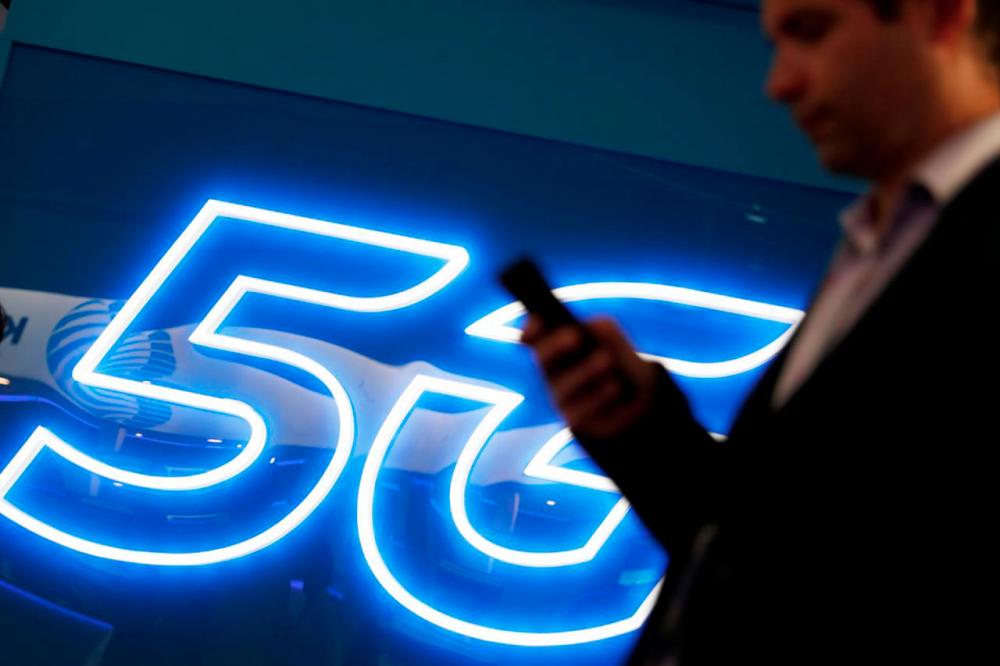KUALA LUMPUR: Malaysia’s fifth-generation (5G) technology plans is one step closer to becoming a reality, with all eyes on the launch of the 5G Demonstration Project (5GDP) in Langkawi, Kedah this Sunday by Prime Minister Tun Dr Mahathir Mohamad.
The next day, a final report by the National 5G Task Force will be submitted to the Communications and Multimedia Minister, Gobind Singh Deo during the 5G Malaysia International Conference, also held on the island in conjunction with the launch.
Thanks to various initiatives by the government and support from telecommunications players, Malaysia is set to spearhead the 5G implementation in Asean, giving the country an edge in the race to implement Internet of Things (IoT) and Artificial Intelligence.
Domestically, the realisation of the most-awaited 5G technology plans are expected to contribute up to RM12.7 billion to the nation’s economy between 2021 and 2025, and create more than 39,000 new jobs, according to the Malaysian Institute of Economic Research.
Malaysia’s 5G journey began with the setting up of the National 5G Task Force in November 2018, comprising 114 members from service providers, academia, ministries and agencies.
According to the Malaysian Communications and Multimedia Commission (MCMC), the task force was mandated to propose 5G implementation strategies for the country.
MCMC has identified 700 megahertz (MHz), 3.5 gigahertz (GHz), 26GHz and 28GHz as the pioneer spectrum bands for the national 5G rollout, with initial rollouts for the first two bands to be managed by a consortium formed by multiple licensees.
The criteria for the consortium will be set out before the end of the first quarter this year (Q1 2020).
MCMC chairman Al-Ishsal Ishak said Malaysia’s 5G will go live soon, with commercialisation set to begin by Q3 2020.
Currently, the commission along with other stakeholders and companies are running 5G demonstration projects across six states; Kedah, Perak, Penang, Selangor, Terengganu and Kuala Lumpur, involving an initial investment of RM143 million.
The parties involved are Telekom Malaysia Bhd (TM), Celcom Axiata Bhd (Celcom), Digi Telecommunications Sdn Bhd (Digi), Maxis Broadband Sdn Bhd (Maxis), Edotco Malaysia Sdn Bhd (Edotco), U Mobile Sdn Bhd (U Mobile), Petroliam Nasional Bhd and YTL Communications Sdn Bhd.
TM recently reported that it had successfully conducted a Standalone (SA) dedicated 5G Network mode test on both C-band and 700 MHz simultaneously on a converged 5G core network.
It has also embarked on 11 use cases in Langkawi — the highest number of 5G use cases among the participating telecommunication companies.
It had also set up an Integrated Operations Command Centre, also known as the 5G Command Centre (5GCC).
All the 5G network and use cases are monitored via the dashboard at the 5GCC 24/7 by TM’s expert and qualified technical team.
TM also partnered with Digi to test the capabilities, possibilities and limitations of 5G network sharing between multiple network service operators during the 5GDP rollout period.
Under the partnership, Digi would operate 5GDP sites (including on-site 5G radio network and 5G core network) in Langkawi to run its 5G use cases, supported by TM in providing fibre backhaul to these sites.
U Mobile also partnered with TM to explore network sharing opportunities using TM’s 5GDP Langkawi network as the platform.
Both parties will explore several network infrastructures sharing models such as Multi-Operator Core Node or Multi-Operator Radio Access Network.
Meanwhile, Celcom and Maxis have successfully conducted Southeast Asia’s first 5G Multi-Operator Core Networks trial, achieving peak speeds of more than 1.1 gigabits per second (Gbps) in an outdoor environment at trial sites in Langkawi.
Both telcos also plan to conduct Malaysia’s first active 5G Radio Active Network sharing trials using 5G Standalone network by Q1 2020.
Digi has also partnered with Malaysia Airports Holdings Bhd and Panorama Langkawi to initiate Malaysia’s first real-time virtual tourism experience, powered by 5G technology, at the Langkawi International Airport (LIA).
Meanwhile, Edotco and Peatalk Corp sealed a memorandum of understanding (MoU) to jointly explore 5G technology deployment in support of Malaysia’s digital agenda.
The MoU was inked following a successful network test conducted at the LIA to increase mobile broadband speeds by up to 10Gbps per user via 5G private network and infrastructure.
The LIA project supports the MCMC’s nationwide 5G demonstration projects and the Airports 4.0 initiative to improve overall airport experience for passengers and vendors.
Edotco had also implemented 5G Fixed Wireless Access private network solutions at LIA, paving the way for it to become Malaysia’s first 5G-connected airport. — Bernama















